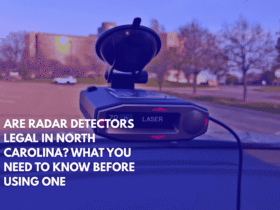Texas law, in line with the U.S. Constitution, generally requires police officers to obtain a warrant before searching your home. This is a fundamental protection against unreasonable government intrusion into private property. However, there are several important exceptions where a warrant is not required.
Warrantless Searches: When Are They Allowed?
Consent to Search
Police may search your home without a warrant if you, or someone else with authority over the property, voluntarily consents to the search.
For example, a roommate can consent to a search of shared spaces, but not to areas exclusively controlled by another person.
If multiple people share control (such as roommates), and not all consent, the police may not be able to conduct a valid search.
Exigent Circumstances
Officers can enter and search a home without a warrant in emergency situations, known as “exigent circumstances.” These include:
Protection of Life: Immediate danger to people inside, such as a report of violence or a medical emergency.
Protection of Property: Preventing imminent destruction of property, such as stopping a fire or burglary.
Preventing Destruction of Evidence: When there is a risk that evidence will be destroyed before a warrant can be obtained.
Hot Pursuit: Officers are in continuous pursuit of a suspect who enters a home.
Once the emergency is resolved, police generally cannot continue searching without a warrant or another legal exception.
Plain View Doctrine
If police are lawfully present in your home (for example, with your consent or due to an emergency), and they see illegal items in plain view, they can seize those items without a warrant.
Search Incident to Arrest
If you are arrested inside your home, police can conduct a limited search of the immediate area for weapons or evidence that could be destroyed. However, this does not grant them broad authority to search the entire home.
What Are the Limits?
Scope of Consent: Only areas to which the consenting party has authority can be searched. For example, a guest cannot consent to a search of your private bedroom.
Warrant Specificity: If police have a warrant, it must specify the areas to be searched and the items to be seized. They cannot search beyond the scope of the warrant.
Probable Cause: Even in warrantless situations, police must have probable cause to believe a crime has been committed or that evidence will be found.
What Happens If Police Search Without a Warrant or Exception?
If police search your home without a valid warrant or a recognized exception, the search is generally considered unlawful. Evidence obtained from such a search may be suppressed in court, meaning it cannot be used against you in a criminal case.
Summary Table
| Situation | Warrant Required? | Notes |
|---|---|---|
| Routine search | Yes | Police need a warrant unless an exception applies |
| Consent | No | Valid only if given by someone with authority over the area searched |
| Exigent circumstances | No | Only for emergencies (life, property, evidence, hot pursuit) |
| Plain view | No | Only if police are lawfully present and evidence is visible |
| Search incident to arrest | No | Limited to area under immediate control of arrested individual |
A Texas police officer cannot search your home without a warrant unless one of the recognized exceptions—such as consent, exigent circumstances, or plain view—applies. Always know your rights, and if you believe your rights have been violated, consult an attorney.
Sources:
– https://www.tdcaa.com/journal/warrantless-search-and-seizure/
– https://sharpcriminalattorney.com/criminal-defense-guides/police-search-seizure-rights/
– https://statutes.capitol.texas.gov/Docs/CR/htm/CR.18.htm
– https://www.texascrimelaw.com/resources/warrantless-searches/












Leave a Reply